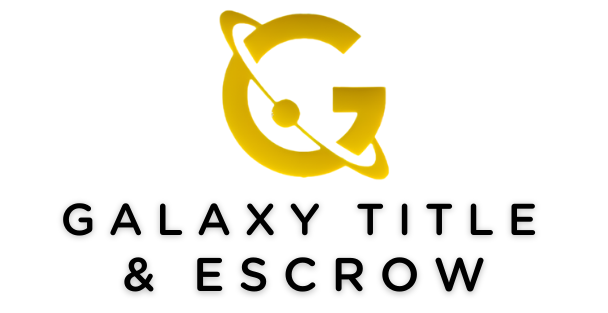A Homeowner’s Association is a non-profit organization that manages the common areas of a residential community. The HOA is typically overseen by a board of directors which is elected by the community’s homeowners.
The HOA is responsible for enforcing the community’s rules and regulations, maintaining shared community spaces, and collecting monthly dues from homeowners. HOAs can also provide amenities to residents such as swimming pools, parks, and playgrounds.
Monthly dues paid to the HOA are used to cover the costs of these services and amenities. In some cases, HOAs may also assess special assessments to cover one-time expenses such as major repairs or capital improvements.

Not all communities have an HOA, but they are most common in planned developments and condominiums. If you’re considering purchasing a home in a community with an HOA, be sure to review the association’s rules and regulations to ensure they are compatible with your lifestyle.
It’s also important to note that HOAs can vary significantly from one community to the next. For example, some HOAs may only be responsible for maintaining common areas while others may also manage trash removal, snow removal, and other services. Additionally, HOAs differ in terms of their assessment rates and the types of amenities they offer.
When deciding whether or not to purchase a home in a particular community, it’s important to weigh the benefits and drawbacks of the HOA.
How Homeowners Associations Function
HOAs are typically comprised of a board of directors, who are elected by the community’s residents. The board is responsible for establishing rules and regulations, enforcing covenants, and managing the association’s finances. An HOA also acts as a governing body to help mediate issues that can arise between neighbors.

HOAs typically collect monthly or annual assessments from their members, which are used to cover the costs of operating and maintaining the community. These costs can include everything from landscaping and snow removal to insurance and legal fees.
Overall, you can consider an HOA as a group of people that determine a set of standards and expectations for the community and manages community finances to fund and maintain community common areas and services.
What are HOA Fees?
Homeowner association fees are monthly or annual charges that cover the costs of maintaining and improving shared spaces in a community and various other services or utilities. The amount of fees can vary from one community to another and are typically based on the size of the home and the community amenities.
Some HOAs also charge special assessments for one-time expenses, such as major repairs or capital improvements. In most cases, these assessments must be approved by a majority of the community’s residents before they can be collected.
The Pros and Cons of a Homeowners Association
Some people love living in an HOA community because they take the guesswork out of wondering where to prioritize homeowner expenses. Others feel like they should have more power over where their money goes. Regardless of what you may be thinking, here are some things to consider when deciding between a community with an HOA or one without.
HOA Pros
- HOAs typically help maintain the value of your community and your property through a variety of set standards related to the maintenance of each home. This way each and every property is neat and well-kept.

- You’ll receive access to many other amenities like a clubhouse, pool, workout/weight room, tennis/racquetball courts, and landscaping.
- HOAs also commonly host socializing events for the neighbors to get to know each other. So you’ll be invited to these exclusive events.
- In some cases, these fees will also cover a portion of your utilities like sewage or trash collection. You won’t have to worry about paying those monthly.
- Your HOA board will mediate any community disputes that may occur. For example, if a neighbor violates a community rule by throwing a loud party, you can go to the HOA and ask them to penalize/notify your neighbor.
HOA Cons
- Typically HOA fees are expensive and they can make an already costly decision like homeownership much more expensive than you originally thought.
- HOAs wield quite a bit of power and can limit the decisions you make over changes in the appearance of your home. Some HOAs have strict rules on paint colors or the ability to cut down trees.
- HOA members are typically just neighbors volunteering for the roles so they may not be the best trained in real estate matters. They could potentially be utilizing the seat to benefit themselves, or worse.
- HOAs can be aggressive about sending notices regarding community infractions and can impose fees. This can be frustrating and annoying.
How Much Power Does an HOA Have?
An HOA has a lot of power. They can impose fees, issue fines, and even foreclose on your home.
An HOA can control the appearance of your home and property. This includes what paint colors you use, how often you must mow your lawn, whether or not you can have a satellite dish, and what type of fencing you can have.
An HOA can also set rules regarding the use of amenities. For example, they may require that only residents can use the pool or that noise must be kept to a minimum after 10 PM.
Discuss with Your Family and Determine What Works Best for You
HOAs are not for everyone. Before you buy a home that is part of an HOA, be sure to have a discussion with your family about the pros and cons. You will also want to review the HOA’s rules and regulations to be sure they fit with your lifestyle. Also, you’ll want to review all of the fees that the HOA may impose monthly, yearly, and for the initial assessment. You’ll want to make sure that you can afford the extra expenses.
Homeownership comes with a lot of extra responsibilities. The goal of an HOA is ultimately to make it easier for homeowners, but some owners do not feel that is the case. If you do decide to purchase a home with an HOA, make sure it’s right for you and your family’s needs. Galaxy Title & Escrow can help you determine these answers if you’re having difficulty. Contact us today!

